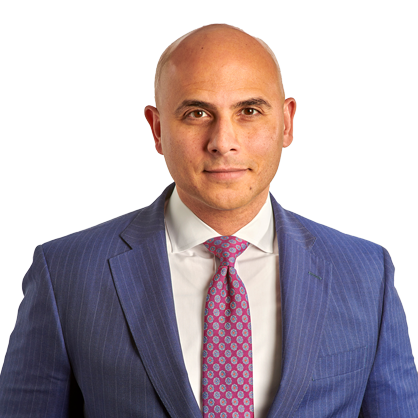Insights
Thought Leadership
Day Pitney White Collar Roundup - October 2021 Edition
Corporate Crime? DOJ Says Not on My Dime
In the keynote speech at the American Bar Association's National Institute on White Collar Crime last week, Deputy Attorney General Lisa O. Monaco announced significant steps the Department of Justice (DOJ) will take in tackling corporate wrongdoing. In particular, Monaco announced changes in three areas: (i) requiring corporations to provide DOJ with information on all individuals involved in the wrongdoing to qualify for cooperation credit; (ii) reviewing all of a company's past criminal and related records in charging decisions; and (iii) clarifying that corporate monitors may well be an appropriate part of resolving cases.
Monaco focused first on individual accountability. She directed DOJ to restore guidance, first issued during the Obama administration, "making clear that to be eligible for any cooperation credit, companies must provide the department with all non-privileged information about individuals involved in or responsible for the misconduct at issue." Monaco then underscored: "A company must identify all individuals involved in the misconduct, regardless of their position, status or seniority." In so doing, Monaco announced a return to the standards on individual accountability previously articulated by then-Deputy Attorney General Sally Yates, before the standards were modified during the Trump administration.
Next, Monaco addressed how prior misconduct by a company may impact DOJ decisions on appropriate corporate resolutions. "Going forward," she explained, "prosecutors will be directed to consider the full criminal, civil and regulatory record of any company when deciding what resolution is appropriate" in resolving a criminal investigation. While previously prosecutors had focused on a more discrete subset of "similar misconduct," such as Foreign Corrupt Practices Act issues in an FCPA case or tax offenses in a tax matter, they will now take a much broader view, indeed starting from the premise that "all prior misconduct is potentially relevant."
Finally, Monaco addressed the use of corporate monitors to verify that companies are living up to their obligations in deferred prosecution agreements (DPAs) and non-prosecution agreements (NPAs), under which the government defers or abstains from prosecution assuming the company fulfills various conditions and obligations. "In recent years," Monaco noted, "some have suggested that monitors would be the exception and not the rule." She disagreed, rescinding any prior DOJ guidance that suggested monitorships are disfavored.
Monaco concluded that DOJ would continue to review how to address corporate wrongdoing, including in the areas of monitor selection, corporate recidivism and corporate compliance with DPAs and NPAs. To that end, Monaco announced the formation of a Corporate Crime Advisory Group, which will propose revisions to DOJ policies on corporate criminal enforcement.
The tough stance reflected in DOJ's new guidance will plainly impact companies already under investigation and seeking resolutions with DOJ. But it also represents a shot across the bow for many others. Monaco herself may have put it best: Companies need to review their compliance programs now so they monitor for and remediate misconduct—"or else it's going to cost them down the line."
There's a New Sheriff (and Sheriff's Deputies) in Town
Damian Williams, the newly minted U.S. Attorney for the Southern District of New York, recently announced his selection of Margaret Garnett as Deputy U.S. Attorney and Daniel M. Gitner as Chief of the Criminal Division. Williams, who has served as an Assistant U.S. Attorney since 2012, is the first Senate-confirmed U.S. Attorney for the Southern District to come directly from the ranks of long-serving Assistants for many years. As has been widely recognized, Williams is also the first Black person ever to lead the Southern District.
In choosing his leadership team, Williams tapped two veterans with significant experience both within and outside of the U.S. Attorney's Office. Garnett, who is first in line to serve as Acting U.S. Attorney if Williams is conflicted or unavailable, has been the Commissioner of New York City's Department of Investigation since 2018. In that role, Garnett was often on the public stage, fielding press and political inquiries, and in part she may take on a similar role at the U.S. Attorney's Office given her experience in this arena. Most recently, the Department of Investigation's report on its investigation into Mayor Bill de Blasio's security detail, which found that the Mayor and his family had misused his security detail, garnered significant media attention. Garnett is also an experienced federal and state prosecutor, having served for 12 years as an Assistant U.S. Attorney and then as the Executive Deputy Attorney General for Criminal Justice in the New York State Attorney General's Office. Among other leadership roles while at the Southern District, Garnett served as Chief of the Appeals Unit, where she oversaw briefing and arguments in the U.S. Court of Appeals for the Second Circuit and advised other prosecutors on legal issues arising in their investigations and prosecutions.
Gitner, who is coming from private practice, may bring a slightly different perspective to the table. He has represented a broad array of clients, including corporate executives, financial and legal professionals, firms, and corporations. Gitner also previously served as an assistant in the Southern District of New York for approximately eight years, including several years as chief of the General Crimes Unit, overseeing the newest assistants in the office.
In describing his selections, Williams referred to Garnett as "a legendary Assistant U.S. Attorney" and Gitner as "one of the best trial lawyers in America." Together, Williams' confirmation and in turn his own leadership appointments make plain there are new sheriffs in the venerable Southern District.
Hey, SPACs: Congress and the SEC Would Like a Word With You
Special purpose acquisition companies (SPACs) have been all the rage since early 2020. Although new SPAC registrations have declined in recent months, attention from Congress and the U.S. Securities and Exchange Commission (SEC) is on the rise. Both bodies are demanding that SPACs—and their sponsors and creators—answer questions over perceived conflicts of interest, rosy financial projections, and thoroughness of investigation into their merger targets.
A brief primer on SPACs: A SPAC is an alternative to a traditional initial public offering (IPO). At the outset, the SPAC "sponsor"—often a prominent investor, but sometimes a celebrity—raises capital through an IPO for a shell company. The now-public shell company (i.e., the SPAC) then has two years to acquire or merge with a private company (in what is called a "de-SPAC" transaction). The private company goes public as a result of the de-SPAC, and the sponsor stands to be compensated handsomely. But if no de-SPAC is consummated within the two-year period, the SPAC must return all funds to investors.
Members of Congress and representatives of the SEC are saying that the peculiarities of SPAC transactions incentivize sponsors to cut corners and pursue de-SPAC transactions with untested targets that are bound to underperform, to the detriment of retail investors.
In late September, a group of Democratic senators sent six serial SPAC creators a letter raising questions about their SPAC-related activities. Sen. Elizabeth Warren, D-Mass. wrote in her press release: "We are concerned about the misaligned incentives between SPACs' creators and early investors on the one hand, and retail investors on the other." The release warns that sponsors have "incentives to quickly strike merger deals, regardless of the quality," and "sponsors and early investors profit from hyperbolic, pre-merger claims about" the target company. The legislators claim SPACs have generated "astonishing reports of abuse and market dysfunction." They "asked" the SPAC creators to provide detailed information about their SPAC transactions and related compensation and financial incentives.
For its part, the SEC has issued a series of statements highlighting concerns about disclosure of SPAC investment terms; sponsors' and board members' alleged conflicts of interest; and the readiness of the private companies (or de-SPAC entities) to meet accounting, financial reporting, and governance requirements. It has warned that SEC staff "will continue to be vigilant about SPAC and private target disclosure so that the public can make informed investment and voting decisions about these transactions."
The SEC's focus can be seen clearly in its widely publicized enforcement action this past summer against a SPAC, its sponsor, its CEO, the target, and the target's former CEO. The SEC alleged, among other things, that the target, an early-stage space transportation company, made misleading disclosures about its capabilities and that the SPAC repeated them without adequate investigation. The case highlights regulators' concern that some SPACs and their sponsors may be hasty in finding a de-SPAC target, regardless of warning signs that should be explored during due diligence into the target and its operations.
All told, more than 400 SPACs are still in search of a business acquisition target, and the clock is ticking. The anticipated crush of de-SPAC activity only confirms that increasing scrutiny from legislators and regulators is not going away anytime soon.
When Crime May Actually Pay ... for Whistleblowers
The SEC's whistleblower program recently surpassed quite a milestone: more than $1 billion in whistleblower payments in 10 years. In particular, several large recent payouts have helped usher in the second decade of the program, which plays an important and increasing role in the SEC's enforcement program.
In mid-September, the SEC awarded two whistleblowers a total of $114 million for information that led to successful SEC and other agency actions, which nudged the total payments over the $1 billion mark. One whistleblower received $110 million for providing significant analysis ahead of the SEC and another agency's investigations. The award was a combination of $40 million from the SEC enforcement case and $70 million from related actions by another agency. By contrast, the second whistleblower provided more limited assistance, and later in the proceedings. That whistleblower received (a paltry) $4 million for contributions to the enforcement action. The award of $110 million to the first whistleblower represents the second-highest payout in the program's history. The highest exceeded $114 million, which the SEC awarded in October 2020.
The SEC also awarded $11.5 million to two whistleblowers for information contributing to another enforcement action. The SEC was not done, however, and soon awarded $36 million to another whistleblower who contributed significantly to an enforcement action as well as related actions by another federal agency.
In October, the SEC announced it had awarded approximately $40 million to two other whistleblowers. Like the September awards, the payout was heavily weighted toward the initial whistleblower, whose exposure of difficult-to-detect violations spurred the opening of the SEC's investigation. The first whistleblower received $32 million. The second whistleblower waited several years to report to the SEC, but did report new helpful information, and was awarded approximately $8 million.
Since the implementation of the program in 2011, the SEC has awarded payments to 218 whistleblowers. Whistleblowers, whose identities are confidential, can obtain 10 to 30 percent of the money collected from enforcement actions when the sanctions exceed $1 million. As large awards keep rolling in and major financial milestones like the $1 billion mark fall, the program will only entice more whistleblowers to report and stir more enforcement activity.
CFTC Finds Tether Coins Untethered to U.S. Dollar Reserves
Recently, the Commodity Futures Trading Commission (CFTC) issued an order settling charges against Tether Holdings Limited (Tether) for making "untrue or misleading statements and omissions of material fact in connection with the U.S. dollar tether token stablecoin." The company was ordered to cease and desist any further violations and to pay a $41 million fine.
Tether, an online virtual currency trading platform, launched in 2014. From inception through 2018, it had represented that the value of its stablecoin was pegged to fiat currency and "100% backed" by corresponding fiat assets, including U.S. dollars. According to the CFTC, during a sample period from 2016 to 2018, Tether in fact held sufficient fiat reserves in its accounts to back tokens in circulation for only about a quarter of the days in the period. Instead, Tether had relied on unregulated entities and third parties to hold funds representing the reserves. In addition, the CFTC found Tether had comingled reserve funds with Bitfinex, another virtual currency trading platform, and failed to undergo professional audits on its reserves.
The announcement by the CFTC added to existing issues for Tether. Earlier this year, the New York Attorney General's Office levied a fine against Tether and Bitfinex of $18.5 million and mandated that they cease trading activity in New York state. In the release, Attorney General Leticia James did not mince words, asserting that "Tether's claims that its virtual currency was fully backed by U.S. dollars at all times was a lie. These companies obscured the true risk investors faced and were operated by unlicensed and unregulated individuals and entities dealing in the darkest corners of the financial system. This resolution makes clear that those trading virtual currencies in New York state who think they can avoid our laws cannot and will not."
The interest in tamping down abuse in the cryptocurrency arena is, of course, not limited to the CFTC or the NY attorney general. In a speech this summer, SEC Chairman Gary Gensler likened cryptocurrency to the Wild West and stated that the "asset class is rife with fraud, scams, and abuse in certain applications." As Gensler laid out in a letter to Sen. Elizabeth Warren in August, the SEC had "brought dozens of actions in this area, prioritizing token-related cases involving fraud or other significant harm to investors." He added, "We haven't yet lost a case."
With regulatory and enforcement interest in scrutinizing virtual currency platforms now virtually ubiquitous, many virtual currency companies and users will be very interested to see whether the SEC's (and other regulators') records hold.
Veteran Southern District Prosecutor Expands Firm's White Collar Bench
Closer to home, Day Pitney is pleased to welcome Sarah Krissoff to the firm's Government Enforcement and White Collar Criminal Defense practice, resident in New York. Krissoff previously served for more than a decade as an Assistant U.S. Attorney in the Southern District of New York.
While serving in the Southern District, Krissoff led high-profile government investigations involving multiple law enforcement agencies across jurisdictional lines. She tried 10 criminal cases to verdict, and briefed and argued numerous appeals before the Second Circuit. Her broad case experience includes complex financial crimes, including in the areas of investment fraud, bank fraud, wire fraud, healthcare fraud, securities fraud, tax fraud, and money laundering. Krissoff also led, among others, investigations combating sex trafficking and crimes against children, racketeering, murder, Hobbs Act robbery, international narcotics trafficking, gun trafficking, arson, and bank robbery.
During her government tenure, Krissoff was also detailed to the Bureau of Alcohol, Tobacco, Firearms and Explosives (ATF), where she was Acting Deputy Chief Counsel, the ATF's second-highest attorney at the time.
Krissoff was a recipient of the 2017 Attorney General's Award for Exceptional Service, the highest award given by the Department of Justice. She also earned a 2012 Federal Prosecutor of the Year award from the Federal Law Enforcement Foundation. Most recently, she was nominated for the 2021 Women in Federal Law Enforcement Prosecutor of the Year.
The firm and its Government Enforcement and White Collar Criminal Defense practice group are pleased to welcome her.



